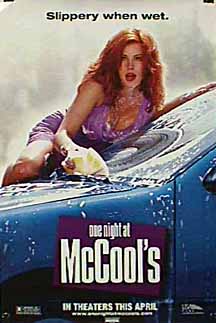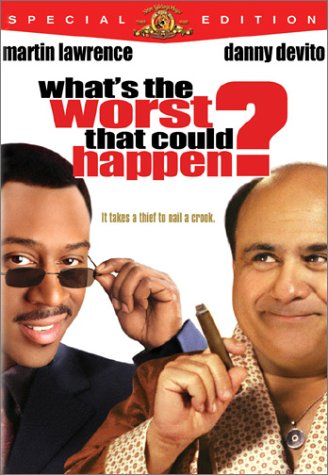Goodbye Lover
Goodbye Lover, directed by Roland Joffé, is yet another
inadequate attempt by Hollywood to recapture the look and feel, if not the
spirit, of 1940s vintage films noirs. But as I noted in my review of
L.A. Confidential, of which this is surely a stable-mate, the letter
killeth, but the spirit giveth life. It has the outward trappings of the
noir picture—the hard-boiled
characters set in a dark urban demi-monde who are trying to get rich by some
criminal means, or to catch those who are so trying, while uttering pointed,
witty, cynical dialogue. But all these things look merely silly in the absence
of the sense of an unforgiving, incorruptible fate hanging over everything which
is what made noir what it was. Above all, the noir universe was
built around a moral order—an order which we might come to resent on
behalf of the little characters who never stood a chance against it but which we
knew in our hearts could never be changed.
All that is gone in Goodbye Lover. Goodbye God would be more like it.
A shallow artistic intelligence like
Joffé’s must think it striking
and original to have two rather unprepossessing little people put one over on
the Universal Lawgiver for a change and actually escape to Europe with a bulging
bag of loot. And as an additional little post-modern touch, he makes the only
character in the film who has spoken on behalf of a transcendent right and wrong
and who is now acting as bodyguard for a corrupt and hypocritical Republican
politician turn to the camera with a wink and say, a propos of the newly
enriched criminals, “It sure is nice
to see good things happen to good people. I mean
it!” Yeah, well. Joffé
doesn’t mean it. Like others of his
kidney, he doesn’t mean
anything. That is the great post-modern liberation: you
don’t have to mean anything, you just
recycle some of the more striking images left over from the days when movies did
have to mean things and cobble them together as
“entertainment.”
I hope my readers are not among those entertained by such rubbish.
Discover more from James Bowman
Subscribe to get the latest posts to your email.






